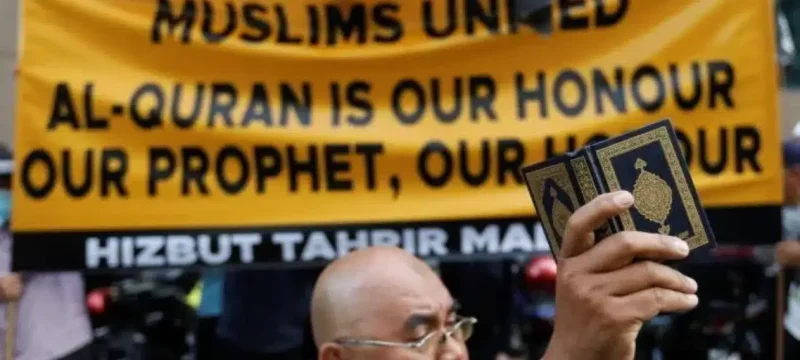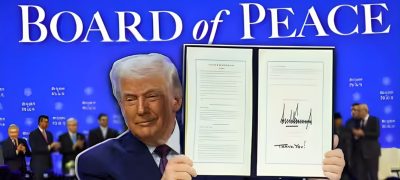JEDDAH: The world community condemned the burning of the holy Quran in Sweden on Saturday, calling it an act of racism and xenophobia, while the Organisation of Islamic Cooperation (OIC) said it will convene an emergency conference on the topic next week to take a united stance.
The European Union, together with several Muslim nations, condemned the latest incident outside Stockholm’s central mosque on Wednesday by a man who emigrated to Sweden from Iraq several years ago. Swedish police have accused him with agitation against an ethnic or national group.
Several countries, including Pakistan, Turkey, Jordan, Palestine, Saudi Arabia, Morocco, Iraq, and Iran, have strongly condemned the incident.
The EU condemned the desecration of the sacred Quran or any other sacred book as “offensive, disrespectful, and a clear act of provocation” in its condemnation.
“Manifestations of racism, xenophobia, and related intolerance have no place in Europe,” said Nabila Massrali, the EU’s foreign affairs and security policy spokesperson.
“The EU joins the Swedish Ministry of Foreign Affairs in strongly condemning an individual in Sweden’s burning of a [copy of the Holy] Quran.” This act does not reflect the views of the European Union.”
“It is even more deplorable that such an act was carried out on the important Muslim holiday of Eidul Azha,” she continued.
Read more : In order to attend President Erdogan’s inauguration, PM Shehbaz travels to Turkey.
OIC
The OIC declared a day after the incident that an emergency meeting will be held next week to discuss the incident.
According to a statement issued by the intergovernmental body of 57 countries, the conference was called by Saudi Arabia in its capacity as chair of the Islamic Summit Conference and will take place at the OIC headquarters in the Saudi city of Jeddah.
The emergency meeting will also go over processes for coping with the incident’s repercussions, according to the statement.
The OIC previously condemned the event, stating it opposed “international efforts to spread the values of tolerance, moderation, and renunciation of extremism.
It also condemned the “reprehensible acts that some extremists deliberately commit” and encouraged relevant governments throughout the world to “take effective measures to prevent its recurrence.”
The OIC further stressed the significance of adhering to the UN Charter in terms of promoting and fostering global respect for and observance of human rights and fundamental freedoms.
Meanwhile, Pakistan condemned the “despicable act,” emphasising that “such wilful incitement to discrimination, hatred, and violence cannot be justified under the guise of freedom of expression and protest.”
“The recurrence of such Islamophobic incidents in the West over the last few months calls into serious question the legal framework that allows such hate-driven actions.”
“We reiterate that the right to free expression and opinion does not grant permission to incite hatred and undermine inter-faith harmony,” the Foreign Office said in a statement on Thursday.
It went on to say that Pakistan’s worries over the incident had been relayed to Sweden, and it encouraged the international community and national governments to take “credible and concrete measures to prevent rising incidents of xenophobia, Islamophobia, and anti-Muslim hatred.”
Separately, President Arif Alvi condemned the incident, calling it “painful.”
He stated that the crime “deeply hurt the sentiments of billions of Muslims,” and that “every state must take measures to prevent such Islamophobic acts.”
After the UAE summoned Sweden’s envoy located in the UAE over the incident, Kuwait summoned the country’s diplomatic representatives.
“The deputy minister of foreign affairs handed the Swedish ambassador an official protest note containing the State of Kuwait’s condemnation and denunciation for the burning of a copy of the Holy Qoran by an extremist,” the foreign ministry said.
The note also chastised Sweden for continually allowing the behaviour, according to the foreign ministry.
The US criticised the incident as well, but stated that providing the permit for the protest outside the Stockholm mosque encouraged free expression and did not constitute an endorsement of the action.
The event has been criticised by Turkish President Recep Tayyip Erdogan and the Turkish Foreign Minister.
Swedish Prime Minister Ulf Kristersson, for his part, distanced himself from the deed. “It is difficult to predict the consequences.” “I believe many people have reason to reflect,” Kristersson said at a press conference.
“This is a serious security issue.” “There is no need to insult other people,” stated the government’s right-wing leader. “I believe that just because something is legal does not mean it is appropriate.”
In an apparent reference to demonstrators breaking into the Swedish embassy in Iraq, he stated, “It is, of course, completely unacceptable to have people who unlawfully break into Swedish embassies in other countries.”
The United Nations Alliance of Civilizations
Miguel Moratinos, the UN Alliance of Civilizations’ (UNAOC) chief official, has categorically condemned the “heinous act.”
Moratinos, the UNAOC’s High Representative, said in a statement that “such a ‘vile act’ is disrespectful to Muslims.” The High Representative emphasised the importance of free expression as a fundamental human right.
Simultaneously, he emphasised that degradation of sacred books, houses of worship, and religious symbols was “unacceptable and can lead to incitement of violence.”
The high representative also emphasised the need of mutual respect in establishing and promoting just, inclusive, and peaceful societies founded on human rights and dignity for everyone.
In this regard, the high representative referred to the United Nations Plan of Action to Safeguard Religious Sites, which provides an overarching framework and a set of recommendations, including strengthening religious pluralism and promoting mutual respect and human dignity.









